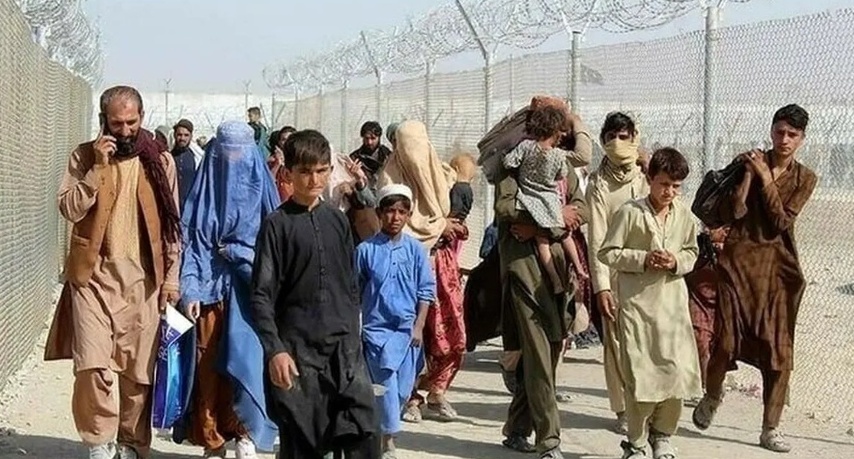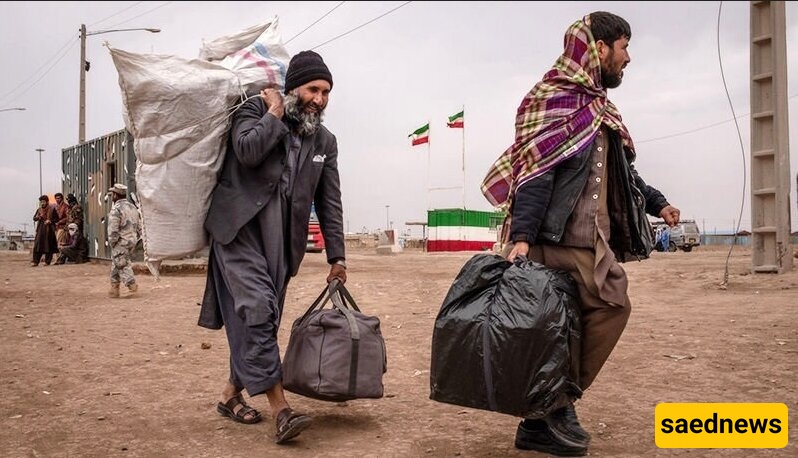SAEDNEWS: Iran hosts over six million foreign nationals, with more than four million undocumented. Despite the recent departure of over one million migrants, complex challenges remain in managing millions more, requiring regional cooperation and respect for migrants’ human rights.

Official statistics indicate that Iran hosts more than six million foreign nationals, of whom about four million are residing in the country without legal permits. In recent months, both voluntary and forced returns of unauthorized foreigners have intensified, with over 1.14 million people leaving the country; however, several million others remain awaiting resolution.

According to Saed News citing Fars News Agency, the latest official estimate puts the population of foreign nationals in Iran at approximately 6.1 million, with over four million lacking legal residence documents.
Nader Yar Ahmadi, head of the Department of Foreign Nationals and Migrants Affairs at the Ministry of Interior, stated: "About two million unauthorized foreigners were present in the country by the end of 2023 (1402 in the Iranian calendar), and in the past year (1403), an additional 2.034 million people have joined this population."
Eskandar Momeni, Minister of Interior, emphasized: "Iran, with a respectful view toward legal migrants, is a hospitable host but has no capacity to accept more unauthorized foreigners. Over one million people have returned voluntarily so far, 70% of whom self-identified."
He added that a 6% decline in bread purchase transactions in the country is due to the departure of a significant portion of foreign nationals, highlighting the necessity to establish a "National Migration Organization" for unified management of migrant entry and exit. The Interior Minister also noted that over 1.1 million foreign nationals have left the country during this period, with more than 70% self-identifying. "We have never looked down on migrants, but unauthorized foreigners must leave the country."
The spokesperson of the Iranian law enforcement agency (FARAJA) said that the police policy toward unauthorized foreigners remains unchanged and that missions are being pursued seriously. Identifying unauthorized foreigners, arresting individuals suspected of collaborating with opposition groups, and preventing the entry of people with fake identities are priorities. In the first four months of this year, the country's surveillance efforts intensified, resulting in identifying and returning more than 1.14 million foreign nationals without legal residency permits.
These actions take place while some migrants have entered the country with sabotage objectives, yet many are honorable and law-abiding individuals whose rights must be respected.
Alireza Fakhari, governor of Tehran, announced about the situation of unauthorized foreigners in the capital: "Since the start of this government, more than one million illegal migrants have been returned to their home countries, including 450,000 from Tehran province. Some of these returns were voluntary, while others followed identification and arrest."
Despite the exit of over one million people, about three million undocumented foreigners still reside in the country, and their situation remains highly complex. Experts believe that return trends will continue given economic and security pressures, but success depends on cooperation with the Afghan government and international organizations.
The Interior Minister stressed the importance of preserving migrants' human dignity, saying: "Migrants must be returned with respect and observance of human rights. Cooperation with the Afghan government and international bodies is the key to resolving the crisis. Service centers and shelters provide dignified assistance to foreigners, and the media play an important role in proper information dissemination."
The presence of around three million undocumented foreigners in Iran poses a complex challenge with security, economic, and social dimensions. The return of over one million signals the government's determination to manage this crisis, yet millions remain in the country, requiring long-term solutions, regional cooperation, and respect for human rights. In this context, the roles of security agencies, local and international governments, and media in guiding public opinion and facilitating returns are crucial.

